The UK and Norway have committed to address mutual undersea threats, particularly those impacting undersea infrastructure.
This agreement was formalised through a Statement of Intent (SOI) signed by UK Defence Secretary, Ben Wallace, and his Norwegian counterpart, Bjørn Arild Gram, at the Maritime Operations Centre in Northwood.
The agreement was triggered by the growing use of the seabed for energy and communications, which has resulted in an increased susceptibility to adversarial threats.
A notable instance was the damaging of the Nordstream pipeline, leading to heightened security measures by both the UK and Norway in the region.
“Cooperating through the JEF and the Northern Group with our long-standing defence partner and NATO ally Norway, we are heightening our joint capabilities to protect Western critical national infrastructure on the seabed,” said UK Defence Secretary, Ben Wallace.
The aftermath of the attack on the Nord Stream pipeline has also spurred a deeper collaboration across collective assets to defend against undersea threats and ensure continued North Atlantic security.
The new partnership promises to bolster the two nations’ capacity to work together and develop protective measures for shared interests in the North Sea. It also aims to streamline the process for allies and partners to join or complement the UK and Norwegian activity.
The objective is to improve the security of the North Atlantic, especially considering the growing dependence on subsea infrastructure for energy and communications.


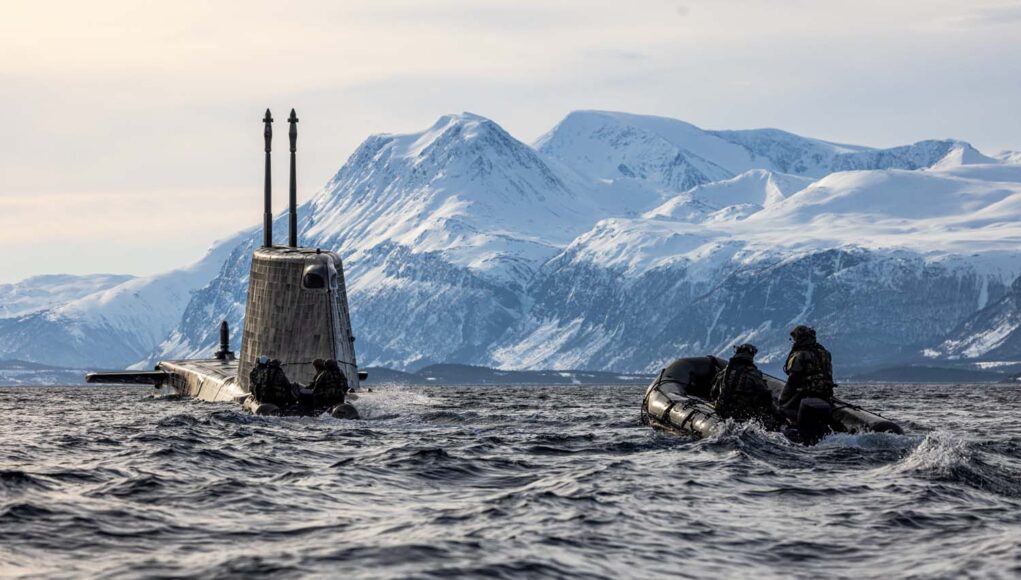
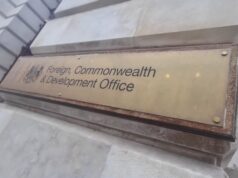
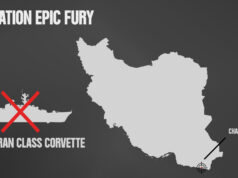
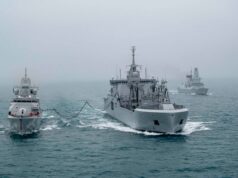
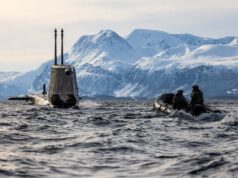
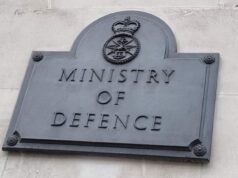
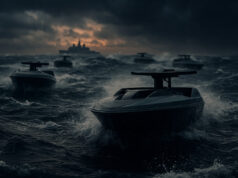
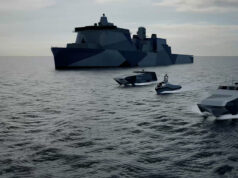
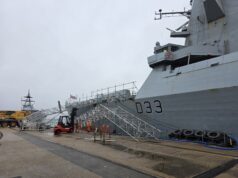

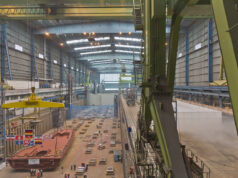

Would like to see this cooperation extended to include all the JEF members. The more the merrier as they say would certainly spread the load more evenly.
Time for a systematic audit of all undersea cables. You’d expect that a decent level of monitoring is being done anyway. I hope there’re some extra cabling as backups just in case and more than one sub available to investigate at short notice.
Hi Quentin,
You raise a number of issues in your post with regards to nationally important networks. They are operated by profit making companies, which is fine provided they take their national responsibility seriously. They don’t. See water companies for an example. I live in the sticks and since we moved I have noticed we get many more power cuts, mostly short ones, than we used to get in town. The reason? Too little redundency in the system, one tree branch down onto a cable and its lights out. Sadly I think it will be the same for undersea assets as well.
I know for a fact that at least one of our national networks was vulnerable to cascade failure if a key node went down at the wrong moment. That was back in the 90’s, but I doubt very much anything has changed. I have also read that the internet is vulnerable to cascade failures if enough of the right nodes are lost. It may not fail completely or globally but some areas could loose service others, see there service seriously degraded, etc…
Taking down networks can be a very effective means of disrupting an enemy state and if properly planned wouldn’t necessarily take much effort. However, these networks can be repaired and with experience and in some cases quite a lot of courage it can be fixed very quickly. Examples of this are Serbia in the 90’s and Ukraine today. Their networks are on land, of course, seabed stuff… hmmm… me thinks this might be focusing minds. Its not like have known about the vulnerability, the UK has honest trans-Atlantic cables since Brunel’s Great Easter laid the first cable in 1866 (her first attempt failed in 1865 when the cable broke).
Cheers CR
Just to add the risk scenario. The UK has the higest concentration of many different form of undersea cables for communication. electrical powere gas and oil anywhere in the world. As I write plans are affot to for electrical interconnector from Moroco to the UK. These are all at risk. I really think it is impossible to protect these assts from a muliple attacks even if there is lot of built in redundancy. Even the many data/voice links are at risk as there is only so much spare bandwidth via satalite. It is a subject that is very rarely talked about in public but there is a huge amont of chatter behind the scenes but chatter is really all that is taking place given the risk level.Ask about national infra structure and most will look at you as though you are mad. Scale it up to international infra stucture and they will tell you are mad!
Standard civil risk assessment for resilience is triangular cable and load balancing across the network. That removes single points of failure to increase availability. However duplication is increased cost both capital and operating. Presumably the type makes significant difference e.g. fibre optic or electric power.
Either way they are detectable which is why the ruzzian trawlers have been busy for decades not catching fish.
Crossing international waters are unavoidable so they will have a continuous right to surveillance of the cables.
Communication was designed from the beginning (DARPA) to be resilient with dynamic routing but Gas or Electric power are not while pootin already weaponised Energy so the case for investment is already clear.
Very much so. If there is a role the UK can play with these partners we should do all we can to develop it. A group of like minded people holding NATO’s northern flank.
Agree, the JEFs members ability to manage the North Sea and high north security would be greatly improved if they did focus joined up basis patrol and constabulary functions as well. To be honest I do think Ireland should step up and join, it’s something they could add to without being members of NATO…although I think their none membership of NATO is a bit of a joke as they more than just about any other nation on the planet are using others to defend them while playing neutral…at least Finland and Sweden as neutrals alway put in the effort to defend themselves.
The Irish Government is considering as part of the current review of the PfP agreement joining the new Critical Undersea Infrastructure Cell that NATO is standing up, and NATO has already signaled support for that, but that’s likely to be it. There’s no public support for joining NATO, and reportedly at least some active resistance to the idea from some NATO members according to some defence reporters
Hi Mark, I do think NATO is a step too far for Ireland, but signing up to the JEF is just a reasonable step to take really, it would show Ireland putting a bit of skin in the game of defending at least Northern Europe. The simple true is everyone know Russia would piss all over Irelands neutrality if there was any form of navel conflict in Northern Europe.
What skin to put in? We bring absolutely nothing to such an organisation or forces as things stand and that’s not likely to change under any combination of political parties (or budgets), let along the contortions in decades of FP that would entail.
Yes, Russia would piss all over Ireland (though arguable so would anyone else if it suited their needs), but the boundaries of what the political parties are willing to do is far short of something like this.
If there was to be any change in true Irish Government fashion it would most likely be after something had gone incredibly wrong enough for Irish voters to notice and care about.
To be fair the navy does have some useful patrol boats if the Irish government could be bothered to crew them, and however small the arm is professional and could offer a couple of mechanised infantry companies or light companies. I know Ireland is never going to come close to the 2% needed for NATO membership and the miss trust of armed forces is still endemic.
I always find the way intergenerational cultural trauma has effected the Irish view of its own armed forces fascinating, as it’s almost completely counter intuitive ( we were subjugated by someone else’s army, their for we mistrust our own) I cannot decide if it was a creation of trauma from the civil war or more to do with a specific interaction and view the peoples of the British isles have..a bizarre narrative that while conquering and oppressing each other and or stabbing each other in the back thought history we are still somehow bound together ( I cannot tell you the number of conversations with random dog walkers I’ve had who have happily told me what Cromwell did to their village.etc etc when the clicked I was English).
Irish views on defence are “complicated” to put it mildly, with the combinations of the Civil War, the fear of mutiny in the 1920s, Dev, the economy, Dev, the relatively unimportant position in geopolitics for much of the 20th century, Dev…
TK Whitaker once put Government defence policy as being an uninsured driver, as long as you don’t hit anything and nobody hits you everything is fine… needless to say that didn’t go down well with the DF officers he was addressing, and not really fit for purpose but highlights what the senior leadership of the Civil Service thinks about the topic.
Jolly good then.
I’m still not sure if the Russians actually meant to blow up the Norway-Europe pipeline instead of nord stream but some Wally gave the wrong coordinates to the explosive team.
Some company needs to come up with a way of keeping an eye on the pipelines. Drones travelling the line looking for differences and reporting back, sensors etc etc.
Drones make sense due to the harsh operating conditions of a sub sea pipeline and the limitations of current cables e.g. repeaters make it possible to tell which fibre optic cable section is out of service. However those sections may be long making the actual point of failure hard to find. Presumably if the pipeline is actually a tube the drone could be inside and provide both quick location and leak blockage of the fault, which is better than venting hydrocarbons into the sea.
No help for resilience but quicker than months of forensic investigation by diverse nations that are close to the pipeline.
Hard to see why a recent pipeline build would not include drones for monitoring and maintenance inline as external MRO is obviously way more expensive and risky.
Completey off topic, but this is a story on the BBC world news website:
https://i.postimg.cc/GhHxdMhS/Opera-Snapshot-2023-05-26-202526-www-bbc-co-uk.png
Whatever next, Gorden the Gopher goes public?
😁
Unspeakable things in broom cupboards I hear Farouk…..
I think he already did….
Anyone would think that someone with a functioning brain is running our maritime defences. This makes absolute sense, the U.K. and Norway are the 2 European countries with the most experience and industry connected with sub sea infrastructure. And the most vulnerable with the most to lose.
I suspect both countries will be watching how RFA Proteus performs and if successful she may have some sister-ships.
Comparatively cheap, robust, adaptable and built for a very similar task. What’s not to like ?
As reported in Navy Lookout, HMS Scott is to be kept in service for an extra decade. This means we are in less of a hurry to get the purpose-built MROSS operational. Maybe another off-the-shelf conversion might be possible, but Proteus crew will include around 60 RN specialists, and those don’t grow on trees, especially now Scott will be kept running in parallel.
Wasn’t HMS Scott just out of a refit-maintenance period recently? Would be silly to get rid of her at this time. Need to keep the numbers up of these specialised ships.
Nope she badly needs a life ex and major refit with new engines,
Just seen that also mentioned in the latest Navy Lookout article.
Oooh, I’d missed that. Great news. I was always mortified at her loss, given her role supporting our submarines.
Yes but the Echos are mothballed, so still room for one more MROSS now.
However RFA Proteus has one issue one place one time, you need to be able to monitor the undersea network at all times for any changes in parameters.
She already has a sister ship, the Topaz Tiamat. If RFA Proteus is a success we should definitely snatch her sister ship up.
Interestingly both are Norwegian built VAARD Designs (the hulls were built in Romania and then outfitted in Norway).
There has been a lot of chatter about not being “purpose built Naval,ships” so what ?
Greece has been using OSV as flexible support ships for years, they are relatively cheap, lean manned, flexible and very tough ships.
Yes but in reality it was purpose built for what the navy wants it for, which is monitoring and surveillance of Maritime infrastructure..They would all have a point if the navy wanted to use it as a warship….I think some people forget the navy is and always has been focused more than war fighting…The role it has always actual spend the vast majority of its time doing has been ensuing and protecting the UKs use and access to the seas.
Had noted the Gov maintenance contract granted to Rosyth end of 2022 for the RSS fleet, which happens to include one of the world’s most advanced “MROSS” in Sir David Attenborough, of course. So yes, evidently the MoD have been on the ball at many levels with this issue, as we’d assume.
Separately, Warship IFR had an article suggesting that maybe we should try and get hold of the Samuel Becketts if Ireland is having difficult crewing them – as if we would not have a similar issue. Struck me that an EU country with intimate interest in undersea communications, and one of the highest GDP (PPP) listed, ought to start taking European and North Atlantic security a great deal more seriously than it traditionally seems to. Perhaps a quiet word from their incumbent Bro’ in the White House is or ought to be in the offing.
If you want my honest opinion the idea of taking the Samuel Beckett class into the RN is just adding insult to injury. So Ireland has undercut every country in Europe by using a lower rate of corporation tax to lure tech companies to Ireland. That increases the need for more undersea cables and Ireland will not pay to defend them, so we take their ships, pay to run them and do the job. Sod that !
IMHO the EU has a role to play as they are the regulator of how most of Europe works. So why not insist that all EU countries spend 2% of GDP on defence to mirror NATO or leave the EU ?
I don’t give 2 figs how Ireland feels about defence spending, nor do I care if they wish to stay neutral but why the hell should they leech off everyone else.
Mmm. Saw Kelin was rattling his cage again, which part motivated my above. Could find out sooner than many expect just how effective our counter to these most deniable of attacks proceed i.e. case of no news is good news.
Here, all UK political parties of note seem to be on the same defence page viz Russia – which is another way of stating ‘Serious, then.’ Await the Refresh ‘with interest’, though CDS looked a bit chocka the other day, poor s-d. Someone’s likely to pay for any unjoined-up-thinking, Methinks.
Rgs
Ireland doesn’t actually have the lowest corporate tax rate in the EU, and is now moving to the agreed global minimum of 15% for the large companies. Moreover most of the cables are simply passing through our EEZ.
As to the EU setting a rate of defence spending, there’s nothing in any of the Treaties that would allow such a move and nobody has interest in a new Treaty, nor is there power to expel a member state, as demonstrated by Hungary still being a member.
The Becketts aren’t for sale, but at effectively full economic employment in the country dealing with the retention issues isn’t going to change anytime soon.
I guess universal service is in order. Many western countries have not ruled it out as this is just not an Ireland problem.
There isn’t a single political party in Ireland that would suggest it, and none would survive in Government for five seconds if it was talked about, let alone tried to get passed, and likely never get elected again.
At this stage we have serving personnel from all over the EU in the ranks, and are trying to headhunt to fill the critical shortages, but Finance and DPER are still fighting against anything else.
Not many political parties in the west would talk or survive in office for sure by bringing this up or implementing this.
But the problem of staffing is still there.
Even without any manpower issues the U.K. might have, other than surface patrolling I’m not sure what they might expect the Becketts to do?
Indeed
Where in many ways I like the idea of Norway and the UK working on the issue I am still cafuckeled. OK let me explain. I as some of you know am ex Royal Signals. I have also worked on several lets say you don’t want to know projects. Even now I am pissed of with Putin, the bugger is destroying the network I designed and got built in the Ukraine (I still laugh because of the redundency I built in and the design. Expensive yes but tunnels, mines and caves is a good place for a network). I also developed a simple system to check if someone or something is taping onto my lines. You measure the outer casing for magnetic and resistance fields at install and resistance and power for through put of the internal cable. If something changes you could, if your good, see this on a good old osi withing a few feet.
Sometimes I have the feeling that people forget the good old methods because they go high tech. Yet sometimes it the good old methods that work. Think about it, an undersea cable/pipeline has a outer metal cover. This has a magnetic field and a resistance. If something attaches then the magnetic field changes as does the resistance. This you can measure, I will not say some other steps as it is mine but It has been used in some projects but anyone who understands comms and how to protect their networks could or would come up with the same concept.
Interesting, Ron, thanks. Yes, I remember, you were at Harrogate.
I understand our own UK based network is protected in a similar fashion, that being a buried F Optic backbone replacing the Uniter nodes and Boxer towers.
And here was me thinking the reason for taking Bakhmut was so that Russia would have a near Monopoly of Titanium..
Ummm…er…cafuckeled? Googled term–no joy. Obviously, British or Royal Signal Corps slang for…? Befuddled and becalmed…
(I am) befuddled…
And that is the purpose of the words. 😂😂😂
I see the Taiwanese are claiming that Chinese ships have cut cables to the island. The ability to claim it was accidental makes all cables and pipelines the number one target.
Out of interest, would it be beneficial if the UK added a 5th dreadnought class enabling a possible 2 CASD bombers on patrol especially with Russia’s threat?
How many balls of sunshine are needed? If someone attacks first we are cooked. If the U.K. attacks first the return fire gets most people. Really a lose lose.
To try and destroy every Russian launch system so they couldn’t launch back and do it at the exact same time is far to difficult.
Currently the U.K. could double it’s missiles on the boats from 8 to 16.
For the cost other items would be more useful. The nuclear option is something that never wants to be used.
No. We’re all screwed with 1 on CASD as it is. The whole point of SLBM is that it is safe from a 1st strike so 1 Vanguard firing its D5s in concert with French and US missiles comprising numerous MIRVs should be enough to make Russia think, the whole point of MAD.
Deep32 would be best qualified to answer this query. Not my wheelhouse, however, believe a fifth boat could potentially be beneficial, to some extent, although it would be a quite expensive proposition, and really require up to four, additional boats to sustain a second boat on CASD indefinitely. Alternatively, RN could probably surge a second boat during a developing crisis, especially the future Dreadnought class boats, while relatively new, by overlapping CASD patrols. Either option presupposes crew, warhead and missile body availability. French and Americans could duplicate effort. Hopefully gives Mad Vlad, the marauding Orcs and the slimeball ChiComs cause to pause…🤔😳
Only one is needed. You have to remember a nuclear ballistic missile sub is effectively a trip wire as well as retribution…..no one know where anyone’s ballistic missile subs are..so effectively the wests enemies would have to undertake a full strike back at everyone if one western nation used its nuclear ballistic missile sub..for the following:
1) who was it..the U.S. the French or the British..Russia or China would never know..so we would all get sunshine in return.
2) the payload from any one ballistic missile submarine would shatter any nation on earth. Even large nations like the US,Russia and china…a modern nation depends on a few nodal cities…kill a few key cities you cripple a nation…china or Russia would not allow themselves to be crippled, while western nations were not…so they would immediately at a minimum undertake a counter force strike against all western nations which the west would respond to..
Then you have the UK US and France…they would know that if one of them launched a strategic attack they would all get hit by a counter force strike..so would likely all just undertake a counter force.
Once the strategic nuclear genie is out the bottle it’s ending civilisation and possibly the human race…it would be incredibly unlikely to be restrained…a few tactical strikes maybe..but once it goes strategic…..especially as the Russians would not know one would know which western nations sub had struck and quite frankly sees us all as NATO/US anyway.
You have to remember that modern modelling around black soot creation and crop modelling shows that around 100 tactical sized warheads would knock off 10% of the worlds food production for close on a decade….a 1000 strategic warheads pretty much endless agriculture for a decade…( our crop plants and food staples are very very susceptible to changes in sunlight or temp either up or down ).
The latest Vanguard just had a refuel, still looks the business. Could do with a few more Astutes-SSNRs now USN too.
BSS/2023/0358
Project Spartan, 8 storey office block/Crew Accommodation 38m high and featuring two interconnected wings on the former site of building B36 at Barrow housing upto 2,000 BAE Office workers and 330 crew. These would be gathering workers from dozens of existing sites around the shipyard and so wouldnt require a net addition of car parking spaces.
Building 1 would house the crew of Dreadnought and office workers and complete in early 2025, Building 2 would house further office and engineering facilities.
Again in their efforts to breeze through planning they are suggesting this proposal isnt materially different from a previous crew accommodation proposal for a 4 storey office block housing 300 on the site of B49/B14/B16.
Two year shipboard trial is supposed to start before the end of the year. Land trials were successfully passed last year.